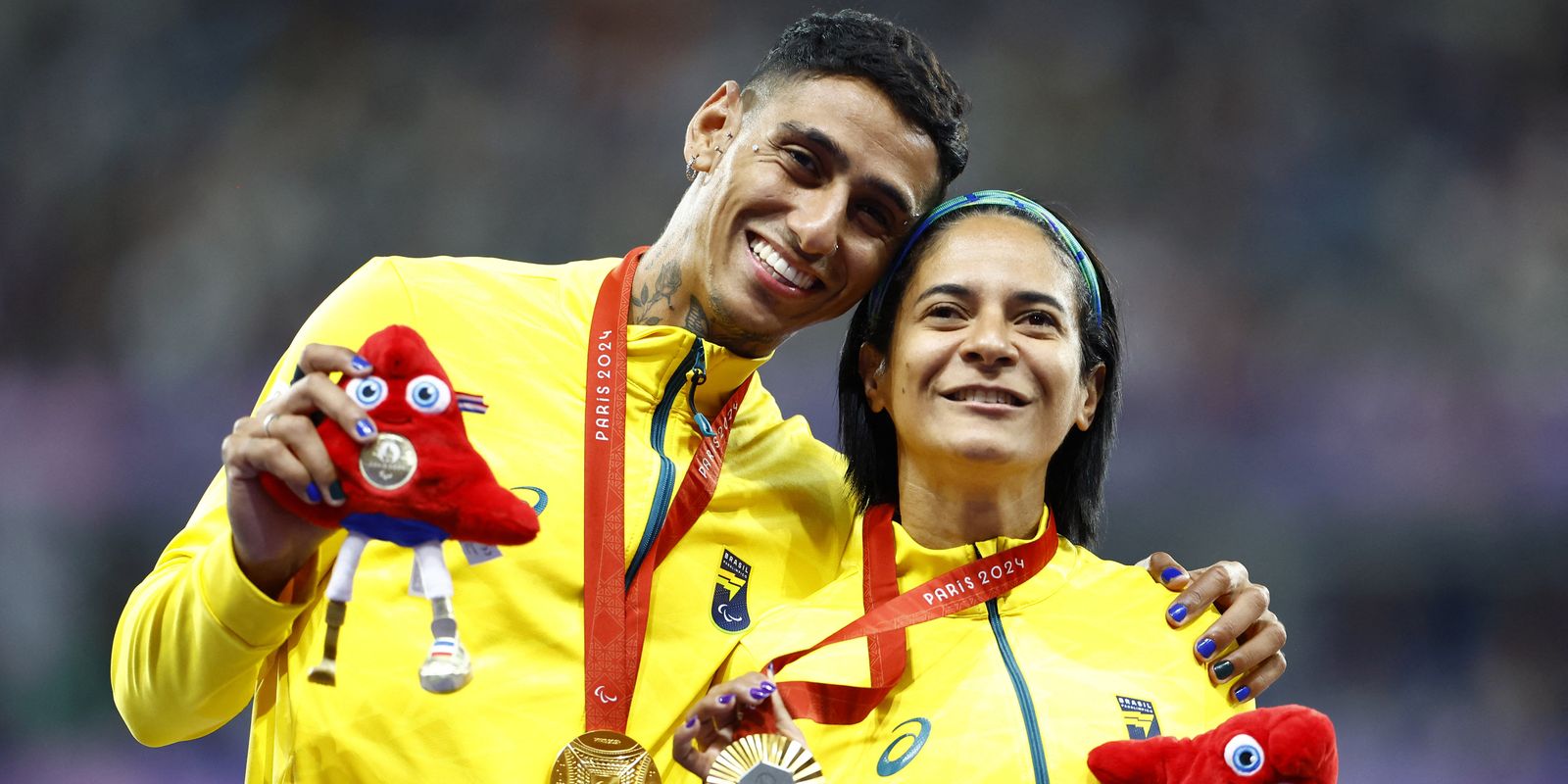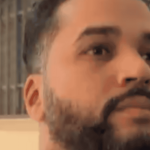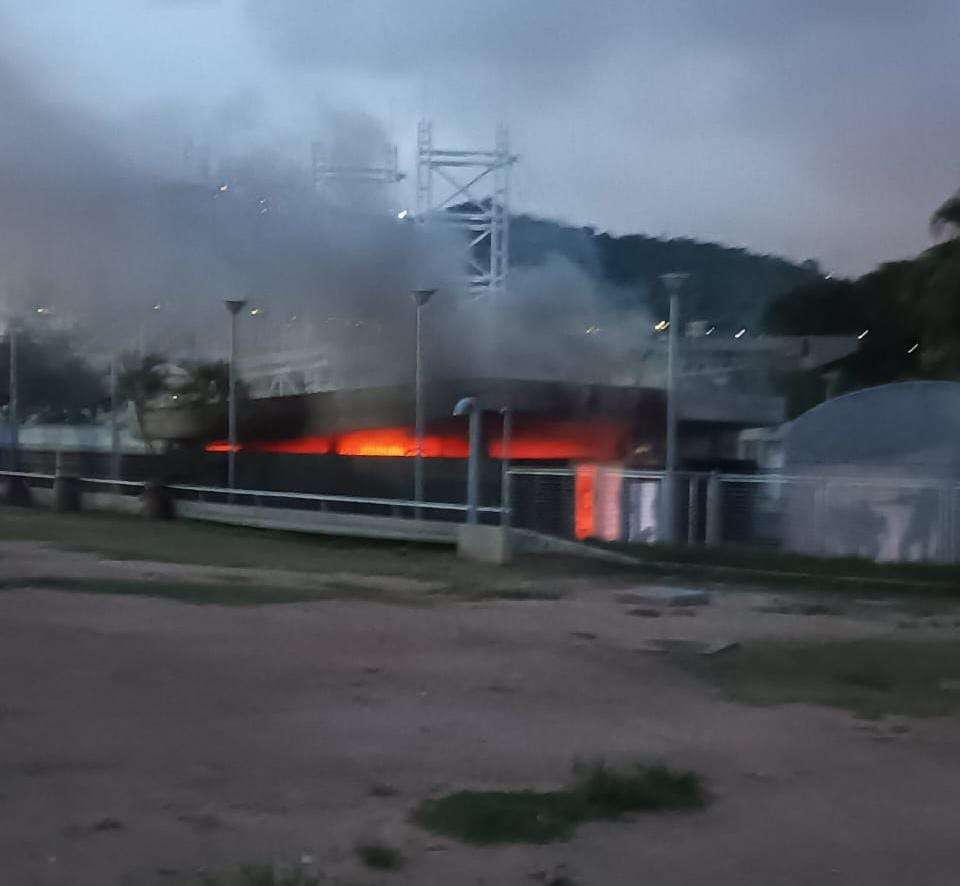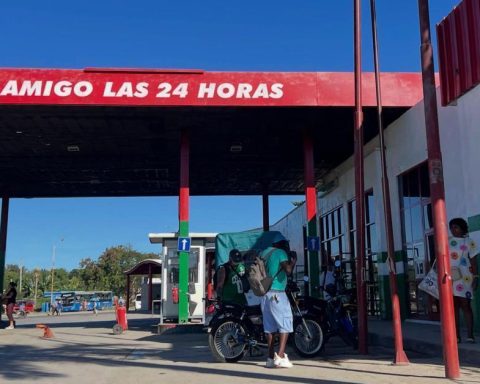Acrean athlete Jerusa Geber (pictured next to guide Gabriel Aparecido dos Santos Garcia), 42, won the gold medal in the 100m, T11 class (visual impairment) on Tuesday (3). She completed the race in 11s83, beating Chinese Cuiqing Liu, who took silver (12s04), and Paraná native Lorena Spoladore, who took bronze (12s14). 
It was the first time that Jerusa climbed to the highest place on the podium at the mega event (she has two silvers and two bronzes), won in three different editions: Beijing 2008, London 2012 and Tokyo 2020.
Lorena Spoladore, in turn, won her third Paralympic medal. She already had a silver in the 4x100m relay and a bronze in the long jump, both won in Rio 2016.
World record in the semifinals
Jerusa broke the world record in the semi-final of the event, with a time of 11.80. The previous record already belonged to her – 11.83, recorded at the Paralympic Training Center in São Paulo.
Only four blind sprinters in history have managed to run the 100m in under 12s. In addition to the Acre native, only the Chinese Cuiqing Liu and Guohua Zhou, as well as the British Libby Clegg, have achieved such a feat. Two other athletes from Brazil have come close: Lorena Spoladore from Paraná, who recorded a time of 12s02 in 2019, and Terezinha Guilhermina from Minas Gerais, who finished the distance in 12s10 at the 2016 Rio Paralympic Games.
It was only in the last Paralympic cycle that Jerusa established herself as one of the top sprinters in the T11 class. After winning the bronze medal in the 200m in Tokyo 2020, she won gold in the 100m and 200m at the 2023 Paris World Championships, gold in the 100m and 200m at the 2023 Santiago Parapan American Games, and gold in the 100m and bronze in the 200m at the 2024 Kobe World Championships.
History
Jerusa was born completely blind. Throughout her life, she underwent several surgeries that allowed her to see a little, but at the age of 18 she lost her vision completely again. She discovered Paralympic sports at the age of 19 at the invitation of a friend who was also visually impaired.
Due to congenital glaucoma from the first days of her life, Lorena Spoladore, from Paraná, gradually lost her vision. The family moved to Goiânia in search of treatment, but by the age of 4, Lorena’s vision had already been compromised to 95%. Two years later, she became completely blind.
*With information from the Brazilian Paralympic Committee (CPB)

















